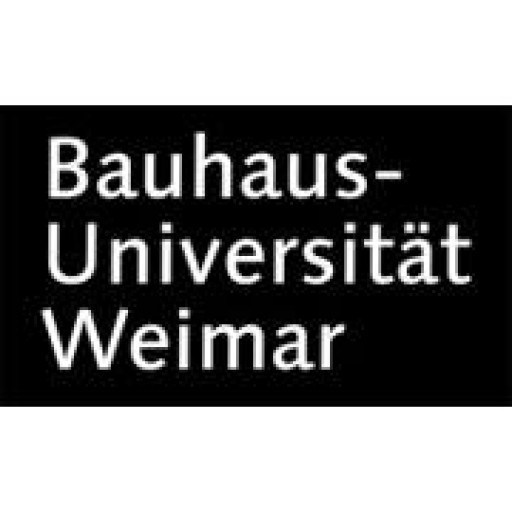Photos of university / #unikassel
The Master's degree program in Renewable Energy and Energy Efficiency for the Middle East and North Africa (REMENA) at the University of Kassel offers students a comprehensive education focused on sustainable energy solutions tailored to the specific needs and challenges of the MENA region. This interdisciplinary program combines technical knowledge with economic, environmental, and social considerations to prepare graduates for leadership roles in the transition towards renewable energy systems. Throughout the program, students will explore a wide array of topics, including solar and wind energy technologies, sustainable power generation, energy storage solutions, grid integration, and efficiency enhancement measures. Special emphasis is placed on regional conditions such as desert climate, resource availability, and infrastructural development, enabling students to design contextually appropriate projects.
The curriculum integrates theoretical coursework, practical lab sessions, and field visits, fostering a hands-on learning experience. Students will also engage in research projects and collaborations with industry partners and regional stakeholders, gaining valuable insights into the real-world applications of renewable energy and efficiency measures. The program aims to equip graduates with the skills required for policy development, project management, and technical innovation in the energy sector, with a particular focus on renewable energy integration into existing infrastructure within MENA countries.
International exchange opportunities and collaborative projects with partner universities enhance the program’s global perspective, while tailored training prepares students to address the unique regulatory, political, and socio-economic aspects of energy development in the region. Upon completion, graduates will be capable of contributing to national and regional energy strategies, promoting sustainable growth, and fostering a transition to cleaner, more efficient energy systems that support environmental conservation and economic stability. This program offers a unique pathway for students committed to advancing the renewable energy sector in MENA, combining academic excellence with regional relevance to create impactful solutions for a sustainable future.
The REMENA master's program offers three main types of modules offered in different universities. The modules include:
- Basic (B) Modules
- Elective (E) Modules
- Thesis (T) Project Module (Master Thesis)
The basic modules being taken during the first two semesters of the study in the REMENA master’s program are Compulsory. Clearly, each student is free to select combinations from the elective modules complying with the examination rules and corresponding to the individual knowledge and interest in the different areas. Finally, the module Thesis Project, comprising 30 credit points (CP) according to the European Credit Transfer System (ECTS) is to be conducted in the Middle East and North Africa (MENA) region or in Germany during the fourth semester.
Basic modules Cairo
- Engineering Thermodynamics
- Heat Transfer
- Fluid Mechanics
- Material Science
- German and Arab Language Courses Cairo
- Presentation and Moderation Techniques
Basic Modules Monastir
- Thermodynamics Fundamentals
- Heat Transfer Fundamentals
- Fluid Mechanics Fundamentals
- German and Arab Language Courses
- English Presentation and Moderation Techniques
Basic Modules Kassel
- Electrical Engineering Fundamentals
- Control Systems
- Technical Mechanics
- Engineering Mathematics
- German-Arab Relations
- Intercultural Communication
- German and Arab Language Courses
Elective modules
- Bio Fuels
- Potentials of Bio Waste
- Project Planning and Tendering
- Project Commissioning, Operation and Maintenance
- Conversion Processes
- Fundamentals in Energy Efficiency
- Solar Thermal Heating
- Concentrated Solar Thermal Devices
- Photovoltaic Devices
- Environmental Issues and Managing the Effects (Global Climate Change)
- Macroeconomic Aspects of RE
- Engineering Economics and Feasibility Studies for REEE
- Potentials of RE in the MENA Region and Europe
The Master program "Renewable Energy and Energy Efficiency for the Middle East and North Africa (MENA) Region (REMENA)" is directed to young professionals with practical experience and a high motivation to contribute to introducing a sustainable energy supply and to the development in the Arab region in general, which includes a keen interest in the culture and language. The participants should aspire to make a career in the international energy sector.
Minimum requirements are:
- a bachelor degree in engineering, natural sciences, economics or social sciences
- practical experience (internships, vocational education, professional work, and others) preferably in the energy sector
- high motivation
- fluent in English.
Graduation Requirements
Prospective applicants for the REMENA master program are required to
- have successfully completed a bachelor's program or an equivalent degree in mathematics, computer science, natural sciences or engineering or to hold an equivalent degree with an average mark on an international scale, or
- have successfully completed a bachelor's program or an equivalent degree in law, business sciences/economics or social sciences with an average mark on an international scale and has successfully passed modules in the field of mathematics, natural or engineering sciences.
Language Requirements
Evidence of very good knowledge of the English language to the level of B2 according to the Common European Framework of Reference for Languages CEFR must be presented. This evidence is granted for applicants, if English is the mothertongue, or previous studies were completely conducted in English.
Visa Requirements
If you are accepted for the program, you have to organize different visa for your stay abroad. All people need a visa for the countries which are not their home country. The visa must cover the entire duration of the academic year and is a pre-condition for enrolment. For more information look at "Visa".
Requirements for Enrollment in Cairo
Once admitted each student should submit the following documents:
- B.Sc certificate certified and notarized by the Egyptian Ministry of Foreign Affairs
- birth certificate certified by the Egyptian embassy in the student home country or from the Egyptian Ministry of Foreign Affairs
- six passport photos (size 4x6 cm2)
- medical report, indicating freedom from HIV infection
- approval of the student home country embassy in Egypt of the student’s enrollment in the program
- certified copy of student passport
- registration forms of the Faculty of Engineering, Cairo University, properly filled in
- declaration that the student will stay in Egypt during the course of studies according to the master program.
See the requirements also on the Cairo University website.
Financial Requirements
To enroll to the master program the student has to pay
- 10,000 Euro tuition fees and additional service fees at the universities each semester as follows:
- around 85€ in Cairo
- around 290€ in Kassel. This service fee must be paid for all semesters due to the fact that the students have to be permanently registered as students of the University of Kassel.
The financing of the Renewable Energy and Energy Efficiency program at the University of Kassel is designed to be accessible to a diverse range of students, reflecting the university's commitment to promoting sustainable development and energy innovation in the MENA region. Typically, the university offers a combination of funding options to support students throughout their studies. These include government scholarships, university-specific grants, external funding opportunities, and financial aid schemes tailored for international students. Government scholarships often originate from national agencies seeking to foster expertise in renewable energy fields, particularly for students from the MENA region, aligning with broader regional development goals. Additionally, the university collaborates with various international organizations and industry partners to provide sponsorship, internships, and project-based funding, which can significantly offset tuition fees and living expenses. For students who demonstrate academic excellence or financial need, merit-based scholarships are available, reducing the economic burden of pursuing advanced studies. International students are encouraged to explore external scholarship programs provided by their home countries or global organizations specializing in energy and sustainability. Moreover, the university's flexible payment plans and part-time employment options further facilitate financial management during the course duration. Funding support is also available for research projects, especially those aligned with renewable energy innovations, enabling students to integrate practical experience with financial planning. The university's administration continuously seeks partnerships with energy companies and governmental agencies to expand funding opportunities, ensuring that students can focus on their academic and research pursuits without undue financial stress. Overall, the financing strategy for this program aims to create an inclusive academic environment capable of attracting talented students from diverse economic backgrounds, fostering future leaders in renewable energy and energy efficiency sectors across the MENA region.
The "Renewable Energy and Energy Efficiency" master's program at the University of Kassel is designed to provide students with comprehensive knowledge and practical skills in the fields of sustainable energy production and the efficient use of energy resources. This program emphasizes the importance of developing renewable energy technologies such as solar, wind, biomass, and geothermal energy, alongside strategies for increasing energy efficiency across various sectors. Students are introduced to fundamental concepts of energy systems, environmental impacts of energy consumption, and policy frameworks supporting the transition to sustainable energy sources. The curriculum integrates technical, economic, and environmental perspectives, preparing graduates for roles in research, industry, and policymaking.
The program typically combines theoretical coursework with practical projects, internships, and research activities, allowing students to apply their knowledge to real-world problems. Courses may include thermodynamics, electrical engineering, energy management, sustainable design, and environmental economics. International collaboration and cultural exchange are often encouraged, reflecting the global nature of renewable energy challenges. The University of Kassel offers state-of-the-art laboratories and research facilities to support student learning and innovation in renewable energy technologies. Graduates of this program are equipped to contribute effectively to the development of sustainable energy solutions, address climate change issues, and support the energy transition in the MENA region and beyond.
Admission requirements generally include a relevant undergraduate degree, proficiency in English, and motivation to work in the renewable energy sector. The program aims to develop analytical, technical, and managerial competencies, enabling students to take on leadership roles in the renewable energy industry. Career opportunities span consulting firms, government agencies, renewable energy companies, research institutions, and non-governmental organizations working towards sustainable development. The University of Kassel’s emphasis on interdisciplinary learning, practical experience, and international outlook makes it a prominent choice for students interested in advancing renewable energy and energy efficiency initiatives globally and in the MENA region.








